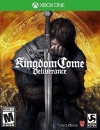“I hate the stalemate analogy because war is not a game of chess,” Snyder said in an interview with the Guardian. “In chess, there are only so many pieces on the board, and the reason why you get into stalemate is that your pieces get into a certain arrangement.”
However, war did not mirror the boardgame, the historian argued, because the amount of resources or weaponry available to each side is not limited. “The reason why I hate the stalemate analogy is that it suggests we can’t just drop five more queens on the Ukrainians board, and we can do it any time.”
Snyder said: “I think there are a lot of people on the Russian leadership and the Russian elite who just enjoy the cruelty. They just like the idea of depriving Ukrainians of water and food and energy and warmth during the winter,” and the goal of the drone-detection system was to help prevent that.
Political arguments against providing more support for Ukraine advanced by some Republicans were “bad faith arguments”, Snyder argued. Those calling for an audit of US spending on Ukraine were not taking into account the fact “we have never audited our own department of defence”.
Snyder said: “The other argument that people make is that we’re fatigued, which is ridiculous. We’re not fatigued, we’re easily distracted.” He argued that those advancing such a position perhaps “want Putin to win” but are “maybe afraid to say so”.
Failure to maintain support for Ukraine would amount to a long-term foreign policy disaster greater than the invasion of Iraq, Snyder argued. “It’s stunning how much the Americans would have to lose in terms of credibility, democracy, deterring China, deterring Russia and basically everything,” the historian said.
Snyder said: “The big, unpredictable thing is that Ukrainians have shown they can do much more than we expected. And I think that’s the point where we have to keep pushing. If they can generally do more than we expect, then we should be trying to find ways to help them,” he said.






























































